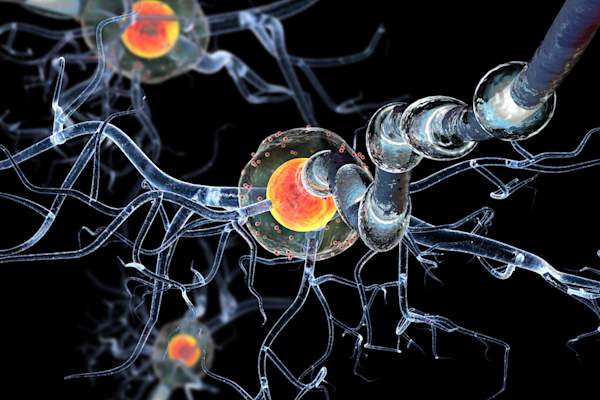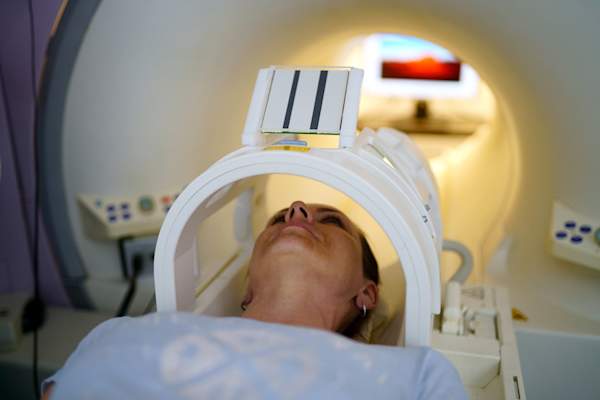您最RRMS的问题,回答!


Even the words “multiple sclerosis” sound serious—and a little scary. And in truth, the disease is a challenging one, affecting your mind, memory, sense of balance, and energy levels, to name a few. But the important thing to know is that MS—while not curable—is highly manageable, particularly the relapsing-remitting form of the disease (RRMS). We asked Lauren B. Krupp, M.D., a neurologist and head of NYU Langone’s Multiple Sclerosis Comprehensive Care Center in New York City, for some straight answers to common questions about this disease.

谁是一个典型的MS患者?
Basic answer: Anyone can get MS. More than one million Americans have the disease, some as young as 3, others in their 80s and 90s. Typically though, the disease shows up in people between ages 20 and 50, with women three times more likely to get it than men. “And about 10% to 15% of the time, the person is a bit older, mid-40s to mid-50s,” says Dr. Krupp. “In these cases, the person may have a slow, insidious progressive problem, say, trouble walking or with strength.”

什么是RRMS的早期症状?
“The earliest indicators of the disease might be symptoms of an abnormal sensation,” like difficulty walking or loss of balance, says Dr. Krupp. “Or there might be a change in vision, like double vision or blurred vision.” The tricky thing is that MS affects different parts of the central nervous system differently in different people, meaning how you experience the disease will not be the same as someone else. Still, there is common ground: More than 50% of people experience difficulty with memory, thinking, and concentration, and extreme exhaustion is a hallmark of the disease.

是什么原因导致RRMS?
Ah, the million-dollar question. Think of MS as the perfect storm of dozens of factors coming together to create an altered immune response directed at the covering of nerves in your body, called myelin, says Dr. Krupp. “The two main elements leading to MS have to do with a person’s genetics and with environmental factors that a person has been exposed to,” she says. It’s not as simple as identifying if you carry a certain genetic mutation, though: There are more than 200 genes involved in the disturbed immune response that triggers MS.

为什么我的MS突然发生?
If it feels like your condition popped up out of nowhere, join the club. “A lot of patients say, ‘I was doing fine and then all of a sudden, these symptoms developed,’” says Dr. Krupp. The truth, though, is that the biologic underpinnings of the disease probably happen within the first year of life—they just aren’t visible until something triggers your first MS event.

What Type of MS Do I Have?
有四类MS的,并且它们都有点一口:复发 - 缓解型,继发进展,原发性进行性,和逐行复发。大多数人属于前两组。“复发性MS更多的是人共85%开始了这种方式,在临床事件发生时,有恢复,然后如果不及时治疗,另一事件发生时,”克虏伯博士说。在任何情况下,你有MS的类型是最有可能的分类基于运动症状,如行走困难或平衡。

How Is MS Diagnosed?
排除其他可能的原因为你的症状后,医生将有可能要执行的MRI身体扫描可揭示了什么叫上你的大脑和/或脊髓的“病灶”。这些是有时候看白凡大脑的其他部分看起来灰色特定的MRI序列的区域,”克虏伯博士说。“此外,医生可能会做一个脊椎穿刺,寻找某些蛋白质叫脊髓液中寡克隆带。”这些蛋白的存在所指示的炎症,可能来自多发性硬化。

我要去从MS死吗?
好吧,开枪。你顺利挺过了9/11,你躲避COVID-19, and now your doc says you have MS? Have you used up your nine lives? Rest easy, MS is not going to kill you, says Dr. Krupp. Part of the fear, she says, may be due to people who were diagnosed before there were any meaningful treatments available. Their symptoms have progressed to a point where, if they get another illness—say, pneumonia—on top of MS, their bodies may be too weak to fight it off. But MS itself is not a killer.

Is There a Cure for My MS?
还没有,但科学家正在越来越近。同时,药物是使其比以往管理的症状容易。称作疾病修饰治疗药物通过破坏连锁反应工作,导致炎症和免疫系统的反应。“这些治疗可能会阻止新的病变或现有损伤的扩大,”克虏伯博士说。“他们可能会阻止复发或MS的攻击。”目前的治疗还旨在减缓大脑体积的东西,自然随着年龄的增长而发生以更快的速度在患有MS发生的损失。

Will I Need a Wheelchair?
Forget the images of people with MS in wheelchairs we used to see in the past. MS isn’t like that anymore. “Are some people in wheelchairs? Yes, of course,” says Dr. Krupp. Older people who were diagnosed in the pre-treatment era may have seen their disease progress much further, she explains. “But if you’ve just been diagnosed, you shouldn’t be thinking about ending up in a wheelchair, because you’re probably not,” she says. “What you do need to think about are positive ways to enhance your health.” Exercising, eating healthy, and taking the meds your doctor prescribes top the list.
MS Facts:National MS Society. (n.d.). “What Is MS?”nationalmssociety.org/What-is-MS
MS患病率:神经内科。(2016年)“在美国商业保险的人口多发性硬化症患病率。”ncbi.nlm.nih.gov/pubmed/26888980
MS流行病学:约翰·霍普金斯大学医学院。(不详)。“多发性硬化中心。”hopkinsmedicine.org/neurology_neurosurgery/centers_clinics/multiple_sclerosis/index.html
MS治疗和管理(1):Cleveland Clinic. (2018). “Multiple Sclerosis: Disease Management.”clevelandclinicmeded.com/medicalpubs/diseasemanagement/neurology/multiple_sclerosis/
